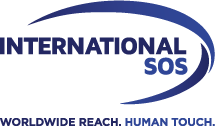Duty of Care a Moving Target for Employers
International SOS recently hosted its first workshop in Johannesburg to address the moral and legal obligations implicit in an organisation’s Duty of Care.

Dr. Philip Nganwa, Regional Medical Director – Assistance (Southern Africa) at International SOS said: “Changes in the law and heightened risk are making it essential for organisations to develop a cohesive and comprehensive strategy that ensures they fulfill their obligation to reduce risks to their employees. The legal obligations are complex and ever-changing, but our 30 years of experience in the field show that companies that take good care of their employees have a workforce that is more engaged and loyal, a benefit that also delivers positive results to the bottom line.”
The workshop was led by Anastasia Vatalidis, a director and head of employment law at leading South African law firm, Werksmans, whom International SOS has been working with for 10 years.
Ms Vatalidis said:
“The common law and various pieces of legislation all give employees the right to a working environment that is safe as well as the right to proper information about the risks that exist in the workplace. The courts have shown that they take this Duty of Care seriously, and therefore employers need to think through the implications in today’s complex business environment.”
One complexity is the growing flexibility and variety of working styles and workplaces. It’s not uncommon for a company to have independent contractors and subcontractors working on its premises, travelling on their behalf, and working from home. Employers need to understand their Duty of Care in these cases because, as Ms Vatalidis points out, the courts are interpreting employers’ duty increasingly broadly, and the consequences can be severe for both the company and the CEO personally.
As some African economies continue to grow strongly, more South African companies are looking north to find new markets. New markets come with new and different risks. In the case of employees working outside of South Africa, it is important that the employer has a plan in place to deal with the possibility that an incident may occur.
Ms Vatalidis said:
“When your employees are travelling or doing business outside of South Africa, a spontaneous response to any incident can set in motion a chain of events with unforeseen consequences. It’s very important that the employer has processes and procedures in place to deal with incidents that may occur, and that employees know what these processes and procedures are. Multi-country cases have an added level of complexity as each country is likely to have its own legal framework relating to the Duty of Care.”
Ms Vatalidis believes that the Compensation for Occupational Injuries and Diseases Act (COIDA) should form the lynchpin of employers’ strategies relating to the Duty of Care. The compensation fund established in terms of COIDA provides comprehensive, tariff-based compensation for injury and illness sustained in the course and scope of employment, and thus gives employees a reliable source of compensation. And because the tariffs are set, it also provides employers with some protection against potentially greater liability in terms of the common law. Extended COIDA cover can also be offered to employees outside of the borders of South Africa for prolonged periods of time by prior arrangement with the Department of Labour.
However, Ms Vatalidis adds:
“Not all incidents where the Duty of Care has been transgressed will be covered by COIDA and Litigants are finding ways of holding employers and third parties directly liable for damages suffered. The proposed silicosis class action suit against South African mining houses is an example of how the goal posts are constantly shifting in this area.” When it comes to the Duty of Care, employers should follow the golden rule both inside and outside of South Africa.
Ms Vatalidis concluded:
“An employer will have to demonstrate that it has taken reasonable steps to assess all workplace risks, eliminate or mitigate such risks, where possible, and inform employees and affected parties about the risks they may face.”
About the International SOS Group of Companies
The International SOS Group of Companies is in the business of saving lives, protecting your global workforce from health and security threats. Wherever you are, we deliver customised health, security risk management and wellbeing solutions to fuel your growth and productivity. In the event of extreme weather, an epidemic or a security incident, we provide an immediate response providing peace of mind. Our innovative technology and medical and security expertise focus on prevention, offering real-time, actionable insights and on-the-ground quality delivery. We help protect your people, your organisation's reputation, as well as support your compliance reporting needs. By partnering with us, organisations can fulfil their Duty of Care responsibilities, while empowering business resilience, continuity and sustainability.
Founded in 1985, the International SOS Group, headquartered in London & Singapore, is trusted by 12,000 organisations, including the majority of the Fortune 500, as well as mid-size enterprises, governments, educational institutions and NGOs. 12,000 multicultural medical, security and logistics experts stand with you to provide support & assistance from over 1,000 locations in 90 countries, 24/7, 365 days.
To protect your workforce, we are at your fingertips: www.internationalsos.com
About Werksmans
Established in the early 1900s, Werksmans Attorneys is a leading South African corporate and commercial law firm serving multinationals, listed companies, financial institutions, entrepreneurs and government. Operating in Gauteng and the Western Cape, the firm is connected to an extensive African legal alliance through the LEX Africa. LEX Africa was established in 1993 as the first and largest African legal network and offers huge potential for Werksmans’ clients as it provides a gateway to Africa to companies seeking to do business on the continent. With a formidable track record in mergers and acquisitions, banking and finance, and commercial litigation and dispute resolution, Werksmans is distinguished by the people, clients and work that it attracts and retains. Werksmans’ more than 200 lawyers are a powerful team of independent-minded individuals who share a common service ethos. The firm’s success is built on a solid foundation of insightful and innovative deal structuring and legal advice, a keen ability to understand business and economic imperatives and a strong focus on achieving the best legal outcome for clients.








